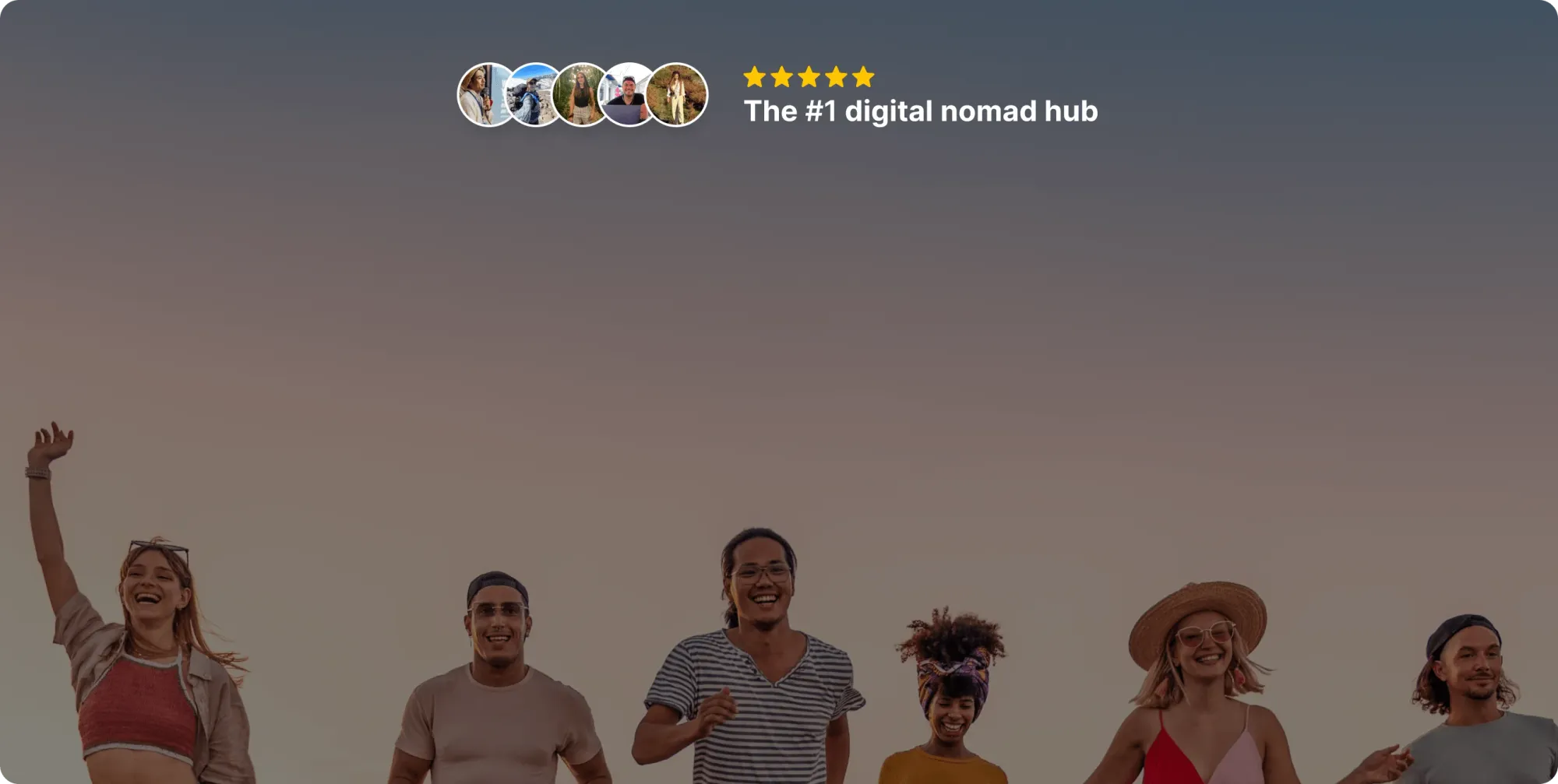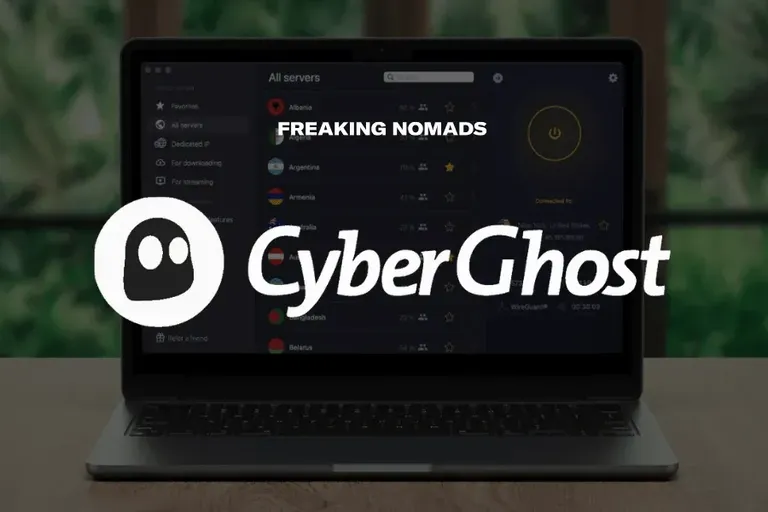Remote Coaching: What It Is, How It Works and How To Start
Learn all about remote coaching: what it is, how it works, and how to start your journey as a remote coach with our detailed beginner's guide.


Remote Coaching is a form of professional mentorship and support that happens 100% online.
While traditional coaching has been around for decades, the phenomenon of virtual coaching is a relatively new way to work that has been growing in popularity over the past 4 years.
I began working as a Writing and Creative Coach in early 2023 and have had the pleasure of collaborating with exciting, accomplished, and unique clients across four different continents. My work is ever-changing and challenging, but there is nothing more rewarding than helping someone achieve their goal.
Starting a remote coaching business doesn’t require any qualifications or specific experience and offers flexibility, low overhead costs, and the chance to reach clients in every corner of the world.
Keep reading to learn what remote coaching is, how it works, and how to start.
What is Remote Coaching?
Remote Coaching is a career involving a professional, expert, or trained individual working with clients to help them move closer to a personal or professional goal via weekly, bi-weekly, or monthly calls.
A coach guides their clients in clarifying their desires and building a path of actionable steps to make real progress. They listen deeply, ask the right questions, and offer insights to help individuals overcome obstacles and stay on track.
Most coaches work within a niche such as life coaching, career coaching, or creative coaching, pulling from their area of expertise and specialized knowledge to help a client along a similar path.
Traditional Coaching requires a client to attend in-person sessions at the coach’s home or an office. In contrast, virtual coaching opens up the possibility to work with anyone anywhere in the world. Typically, remote coaches will meet with their clients via video conferencing, however, they can also communicate using calls, emails, or messaging apps depending on the client’s preference.
How Does Remote Coaching Work?
Remote coaching works through a coach and client meeting regularly via video or audio calls to follow a progress plan and move closer to the client’s goals.
The coaching journey usually begins with a free 45-minute consultation call. This could be hosted via Zoom, Google Meet, or simply over the phone and scheduled using a service such as Calendly or SimplyBook to sync up calendars and gather onboarding information.
The consultation call is incredibly important as it allows both the coach and client to get to know one another and decide if they might be a good fit moving forward. From there, the coach will send the client a contract and schedule the first session.
This initial coaching session typically revolves around the client's short, medium, and long-term goals, with the coach introducing ideas for a progress plan. Every coach is different, but many will set ‘homework’ between sessions to ensure the client is continuing their progress outside of their time together.
Coaches will need to keep track of these tasks, as well as session notes, resources, and goals, using software like Google Docs or Notion. Clients will have access to these spaces to keep their own notes and go over anything discussed during each session.
A coach’s schedule can be extremely busy with multiple meetings, tasks needing reviewing, and client communication, so they must have a rock-solid project management system like Monday.com or Trello.
Benefits of Remote Coaching
Remote Coaching is an amazing option for those wanting to work remotely as well as helping clients in a measurable and meaningful way.
For coaches, remote coaching allows you to be your own boss. You can choose when to work and where to work from, removing other work limitations like travel and time zones. Coaching remotely also vastly drops your overhead costs as you remove the need for a dedicated coaching space such as an office. Instead, you can hold sessions from anywhere so long as you have access to a private room with an internet connection.
Coaching remotely also means working with people from all around the world. This diversity in clients keeps your work interesting, exciting, and challenging and opens the door to a much larger clientele.
For clients, remote coaching means you get to choose from a wider selection of coaches to find the perfect match for you. Without the need to travel to sessions, remote coaching can also be more accessible and comfortable, only requiring your time and access to a phone or computer.
How to Become a Remote Coach (A Step-By-Step Guide)
There are no strict guidelines or mandatory qualifications to becoming a coach, however, there are several essential steps needed to help a potential coach set themself up for success.
Step 1: Research
It’s important to remember that all forms of coaching can involve building the trust of a client in often vulnerable situations. Anyone considering virtual coaching should start by researching what it means to be a coach and the most important coaching practices.
Coaching is not and should never be considered as a form of therapy, and a potential coach must understand the fundamental differences between the two.
Step 2: Choose a Niche
Launching your own remote coaching business comes in many shapes and forms. Choosing a niche enables you to focus your work on a particular practice and better reach clients looking for guidance in that one area.
To find your niche, start by considering your passions, experience, and specialized knowledge. Your niche should resonate with you deeply and be something you feel confident offering advice and insights about.
Some common niches are:
Life Coaching
This form of coaching takes a holistic approach to helping someone align their current life with their future goals. This broader area of focus can cover many different coaches and considers every element of life, from relationships to work to fitness.
Executive Coaching
Executive Coaches work with high-level executives, CEOs, or company founders. An executive coach will support their client through the challenges of leadership, implementing corporate initiatives, and creating better workplace synergy.
Creative Coaching
Those practicing creative coaching work with clients to unlock their creative flow. This helps clients to stay accountable and complete creative projects, building confidence in expressing their creative voice.
Career Coaching
Career coaching is aimed at people amid a career transition. It helps clients to align their desires for the future with actionable change in the present and offers support in making a plan for the future, interviewing, and navigating change.
Performance Coaching
Aimed at those wanting to excel in a current position, performance coaching works to help individuals locate areas of improvement and build goal-based skills to grow and advance within their work.
Step 3: Learn and Study
Depending on your niche and experience level, you may want to consider completing a course or certification before moving forward as a coach.
Whilst there is no one singular coaching board, many companies offer extensive coaching courses designed to teach students how to create successful and meaningful coaching work. Popular course providers include ICF, Co-Active Coaching, and The Academy of Creative Coaching.
Alternatively, there are countless books and free online resources for anyone considering coaching, including The Coaching Habit, The Prosperous Coach, Coaching Questions, The HeART of Laser-Focused Coaching and The Book of Coaching just to mention a few.
You can also reach out directly to established coaches. Most are always happy to speak with new coaches, offer support, and share their guidance.
Step 4: Build Your Online Presence
To become a virtual coach, you will need to have a strong online presence to market yourself, find clients, and share your insights with the world.
Begin by building a website to represent you as a coach, you can simply buy a domain name from sites like Namecheap or use website builders like Wix or Squarespace to get started. Consider working with freelance UX/UI designers to come up with branding that resonates with your personal message.
Social Media is another great method for connecting with potential clients. Rework your LinkedIn and create social media accounts as a designated space to share coaching insights. Creating coaching content like blog posts, reels, or YouTube videos will build your credibility as a coach by demonstrating the type of advice and frameworks you can offer to your clients.
Step 5: Advertise Your Services
Clients won’t be able to find you until you start putting yourself out there and letting the world know that you are a coach. Start small, share your new business endeavor with friends and family, and offer free sessions in exchange for a client testimonial to share online.
Post on LinkedIn and reach out to members of your network that you feel could benefit from your coaching. Get specific about who your dream clients would be and then find them. Draft cold emails and DM templates that share your work with a potential lead and start reaching out to them.
Your first client could come from anywhere. Speak your success into reality and keep your eyes and ears open for opportunities to expand your coaching network.
The Essential Skills for Remote Coaches To Thrive
To deliver exceptional results, coaches should master a range of essential skills that foster connection, progress, and transformation. Here are the top ones:
1. Communication
It’s important to be able to understand what a client is telling you, directly and indirectly, and to ask the right questions to help move them toward a mental unblocking.
2. Goal-Setting
A great coach finds ways to create small goals every week and set tasks for the next session that quantifiably move a client towards their long-term goals.
3. Empathy
As a coach, your primary job is to listen. A client should feel understood and safe during sessions without fear of judgment.
4. Multitasking
As an independent contractor, coaches must oversee their schedule, client communications, finances, contracts, marketing, and even employee management. You will need strong time, project, and people management skills to succeed.
5. Problem-Solving
Clients seek coaching as a means to overcome the obstacles in their lives. Successful coaches are adept at finding routes through these challenges in often creative or unexpected ways.
My Top Tips to Build a Successful Remote Coaching Business

Working as a remote coach is a hugely rewarding job. There is no doubt of that. I love my clients, I love getting to watch them grow, and I love the lifestyle working remotely has allowed.
And if you are inspired by the idea of empowering people worldwide and working as a full-time digital nomad, I encourage you to take that first step toward becoming a remote coach. But there is also no deny that there will be challenges along the way.
So, to help you get prepared, here are the top tips that I've learned throughout my career that I want to share with you:
Tip 1: Be extremely meticulous and organized
Use Notion to create client dashboards to manage notes, resources, and weekly tasks all in one place. During your first meeting with a new client, onboard them to Notion and get them to type their own large, medium, and small goals at the top. This helps the client to better commit to these goals and keeps them at the forefront of the coach’s and client’s minds during each session.
Tip 2: Don’t overbook yourself
Initially, it may be tempting to accept any client that comes your way, but this will lead to burnout. I never do more than three coaching sessions in one day to ensure I can maintain the same energy and quality of coaching for all clients.
I’ve also learned that not every client is the right fit for me. Really reflect on whether you can truly help a client or whether they may be better suited for another type of coach.
Tip 3: Bulk up your social content strategy
Create a content strategy and prepare blog and social media posts in advance to go out weekly. Content creation has led to around 1/3 of my client leads and helped me build a great community of other coaches to lean on for support.
Ready to Start Your Remote Coaching Journey?

Join our global
digital nomad community
Join us for free
Freaking Nomads is supported by you. Clicking through our links may earn us a small affiliate commission, and that's what allows us to keep producing free, helpful content. Learn more
Read Next


CyberGhost VPN Review: Best Budget VPN for Digital Nomads?


Pros and Cons of eSIMs for International Travel


